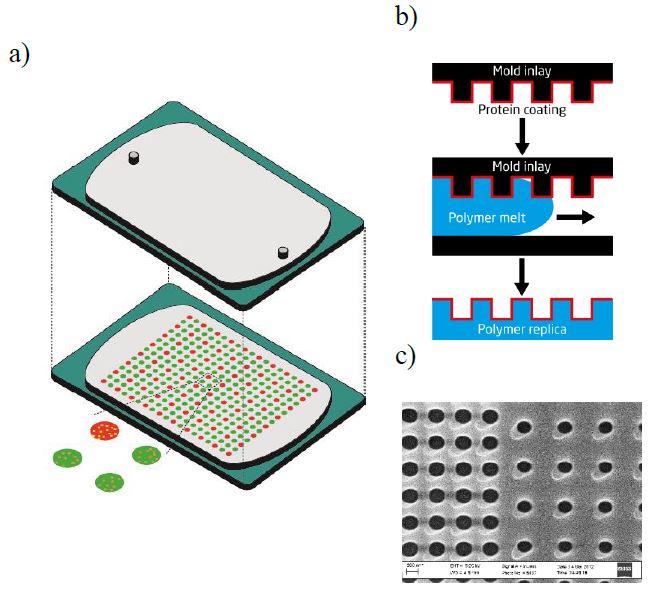
Figure 1 – Injection molded polymer chip for automated cell sorting (A). During the injection molding cycle, protein is transferred from a structured nickel mold to the replicated polymer (B). Polymer nanotopography is utilized as a way of modifying cell adhesion of captured cells, and facilitating release (C).
Background
Cancer immunotherapy is the use of the immune system to reject cancer. Our immune system is normally designed to tolerate self and reject non-self agents. Since tumor cells are a part of a patient’s own cells, these are more or less tolerated by the immune system. Much effort is therefore put into developing methods to stimulate dendritic cells (DCs), which are crucial in activating the body’s immune system, to recognize tumor cells. Dendritic cells (DCs) are crucial in activating the body’s immune system. However, the low efficiency and the high costs associated with the treatment, limits its current therapeutical use.
Objective
The main aim of this PhD project is to demonstrate specific cell capture, production of DCs by maturation during culture and release of the cells in a polymer chip (see Figure 1A). The polymer chips are fabricated by injection molding, using a method allowing simultaneous shaping and transfer of functional biomolecules from a nickel mold surface to a polymer replica (see Figure 1B). A part of the project is to optimize the method used to produce homogeneous protein micro-spots on a nanostructured mold surface. Nanostructuring of the polymer is exploited as a way to modulate the adhesion of cells to the underlying culture substrate, in addition to facilitate harvesting of the cells at the end of culture (see Figure 1C).
Thor Christian Hobæk, PhD student, DTU Nanotech
Niels B. Larsen, Professor, main supervisor, DTU Nanotech